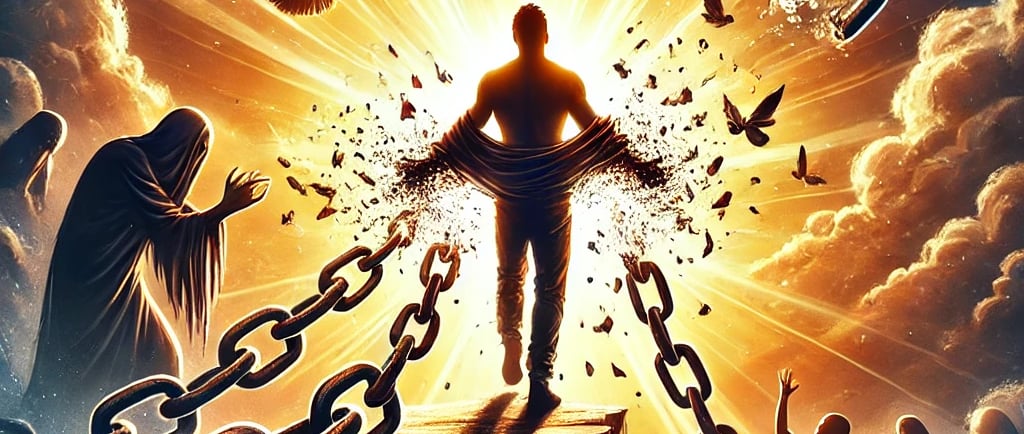Breaking Free:
Understanding the Hidden Roots of Addiction and Reclaiming Your Life
3/6/20252 min read


Addiction—whether to alcohol, drugs, gambling, or nicotine—is often dismissed as a personal failing. But what if these dependencies are symptoms of a deeper struggle? A growing perspective suggests that addiction stems from a fundamental disconnect: a lack of self-understanding, unmet potential, and the crushing weight of societal pressures. This article explores the unseen forces driving addictive behaviors and offers pathways to reclaim control.
The Psychology of Escape: Why We Turn to Substances
Modern life bombards us with stress, unrealistic expectations, and a constant need to perform. For many, substances or compulsive behaviors become a temporary refuge. Alcohol might numb emotional pain, gaming offers an illusion of control, and nicotine becomes a ritualized crutch. But these “solutions” are traps.
The Myth of Relief: Alcohol and drugs create a fleeting sense of euphoria by disrupting brain chemistry. Over time, they erode the very neural pathways needed for rational decision-making, trapping users in a cycle of dependency.
The Illusion of Control: Gambling and gaming prey on the brain’s reward system, mimicking achievement while draining financial and emotional resources.
Normalized Harm: Cultural exposure—seeing family members smoke or films glorifying substance use—shapes perceptions, making destructive habits feel “ordinary.”
The Physical Toll: What Addiction Does to the Body
The damage extends far beyond cravings:
Brain Degradation: Alcohol causes red blood cells to clump, blocking tiny capillaries and starving neurons of oxygen. Over time, this kills brain cells, impairing memory, judgment, and emotional stability.
Energy Drain: Addictions lower the body’s vibrational frequency, fostering fatigue, irritability, and a distorted worldview.
Ripple Effects: Families and communities suffer as loved ones spiral into aggression, neglect, or financial ruin.
Breaking the Cycle: Steps to Reclaim Agency
Acknowledge the Root Cause
Addiction often masks unmet needs: unfulfilled ambitions, unresolved trauma, or a lack of purpose. Start by asking, “What void am I trying to fill?”Detoxify and Rebuild
Physical Cleanse: Support liver and kidney function with hydration, nutrient-rich foods, and targeted supplements to repair cellular damage.
Neurological Support: Omega-3s, B vitamins, and antioxidants can aid brain recovery.
Rewrite Your Environment
Distance yourself from triggers—toxic relationships, environments, or routines that enable dependency.
Seek communities that prioritize growth, whether recovery groups or creative circles.
Rediscover Purpose
Many recovering addicts thrive by channeling energy into art, mentorship, or entrepreneurship. “Your talents are still there,” says one expert. “They’re waiting to be reignited.”
A Holistic Approach: Beyond Willpower
Recovery isn’t just about quitting—it’s about rebuilding. Consider:
Energy Work: Practices like meditation or yoga can recalibrate the body’s vibrational state, reducing cravings.
Professional Guidance: Therapists specializing in addiction can uncover subconscious drivers, while holistic healers address spiritual depletion.
Mineral Balance: Restoring magnesium, zinc, and selenium levels can stabilize mood and reduce withdrawal symptoms.
The Bigger Picture: Society’s Role
Addiction thrives in environments of disconnection. To prevent it:
Educate Early: Teach emotional resilience and self-awareness in schools.
Reframe Media Narratives: Challenge glamorized portrayals of substance use.
Build Support Networks: Foster workplaces and communities where vulnerability is met with empathy, not judgment.
Final Thought: You Are Not Your Struggle
Addiction isn’t a life sentence. As one survivor shared, “Recovery began when I stopped fighting myself and started understanding why I was hurting.” By addressing the roots—not just the symptoms—freedom becomes possible.
If you or someone you love is struggling, remember: Help exists. The first step isn’t perfection—it’s curiosity. Ask the hard questions. Seek the missing pieces. Your story isn’t over; it’s waiting to be rewritten.
